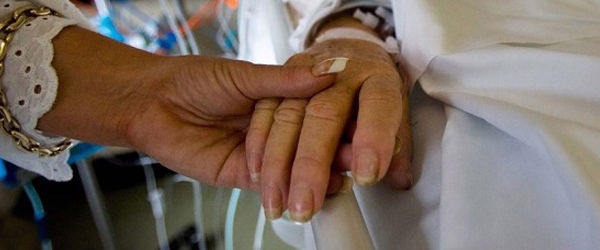New evangelization will never be possible without women who are proud and happy to belong to the Catholic Church, the president of the Belgian bishops' conference told the Synod of Bishops."Two-thirds of active members of the church are women," and the primary evangelizers are usually women, "however many women feel discriminated against by the church," Archbishop Andre-Joseph Leonard of Mechelen-Brussels told the synod Oct. 9."It's high time" the church better explain why only men may be ordained, he said.It is not because women are looked upon as being less worthy or able to minister to others; "it's absolutely the contrary," the archbishop said.The priesthood is open only to men "because the male figure of the priest is a representative of Christ, the groom, who came to wed humanity" through his spouse, the church, he said.A male priesthood "is only out of respect for this profound symbol of marriage," Archbishop Leonard said. "Let us remember and remind the church of her profound feminine nature as the bride of Christ and our mother."The archbishop spoke forcefully and with emotion, said Basilian Father Thomas Rosica, who briefed reporters about what occurred in the synod hall. The speech was a bit of a "shocker," said one synod participant, because the archbishop is considered to be very conservative.Archbishop Leonard asked everyone to give thanks for "the quality and the specificity of the massive contribution of women to evangelization.""Without joyous women who are recognized for all of their qualities" and who are proud of belonging to the church, "there will be no new evangelization," he told synod participants.He called on church leaders to "never hesitate to entrust more important roles to women in the life of the church. We must find new and strong ways to do this," he said.Synod participants spent the morning session Oct. 10 in small groups divided by language.In one of the four English-language groups, Cardinal Timothy M. Dolan of New York made great efforts to get the three women and four laymen in the group to speak and participate as much as the bishops, according to Father Rosica.Together with Australian Cardinal George Pell of Sydney, Cardinal Dolan "created a mood to speak because there was a little bit of timidity" within the group of 30 English-speakers, said Father Rosica, who is part of that working group.Cardinal Dolan said it was his first experience at a world Synod of Bishops, and that he was not there just to sit and listen to bishops, but to also tap into the rich experience and expertise of the religious women and laypeople attending as experts or observers who normally do not get a chance to address the larger assembly.Father Rosica said the initiative was "very well-received" and that one nun told him she was pleased they weren't there "just to sit in the back and listen."Synod addresses interreligious dialogue, sex abuseCatholics, especially those who live in multireligious societies, must have a clear understanding of their own religious identity, but they also must recognize the spirit of God at work in others, said the Vatican official in charge of interreligious dialogue. Cardinal Jean-Louis Tauran, president of the Pontifical Council for Interreligious Dialogue, told the Synod of Bishops Oct. 10 that new evangelization is needed to equip Catholics not just to live their faith, but also to effectively engage in dialogue with others. The need for interreligious dialogue, the challenges faced by Christian minorities in predominantly Muslim countries, and lessons that could be learned from other religions were topics mentioned in several speeches to the synod Oct. 10-12. Interreligious dialogue "always begins with the assertion of one's own convictions," Cardinal Tauran said. The church "must denounce with great vigor the violence" that sometimes is committed in the name of religion and it cannot stand idly by in the face of persecution, he said.Also at the Synod, a Canadian bishop whose diocese was rocked by clerical sex abuse crises said that the new evangelization must address the reality of distrust and disappointment the scandal left in its wake. With the sex abuse crisis, Catholics have experienced "a great disorientation that leads to forms of distrust of teachings and values that are essential for the followers of Christ," Bishop Brian Dunn of Antigonish, Nova Scotia, told the Synod Oct. 12. The Diocese of Antigonish has sold hundreds of properties in an effort to raise the money necessary to cover legal settlement and sexual abuse lawsuit costs from before Bishop Dunn's appointment. The Catholic Church cannot ignore the need to find a way to "evangelize those who have been deeply hurt by clergy who have been involved in sexual abuse," Bishop Dunn told the synod. One possible way forward, he said, is to look at the story of the disciples, disillusioned by Jesus' death, who are met by the risen Christ on the road to Emmaus: “Christ walks with them and listens to them.” —CNS{gallery width=100 height=100}gallery/2012/1019/synod/{/gallery}

